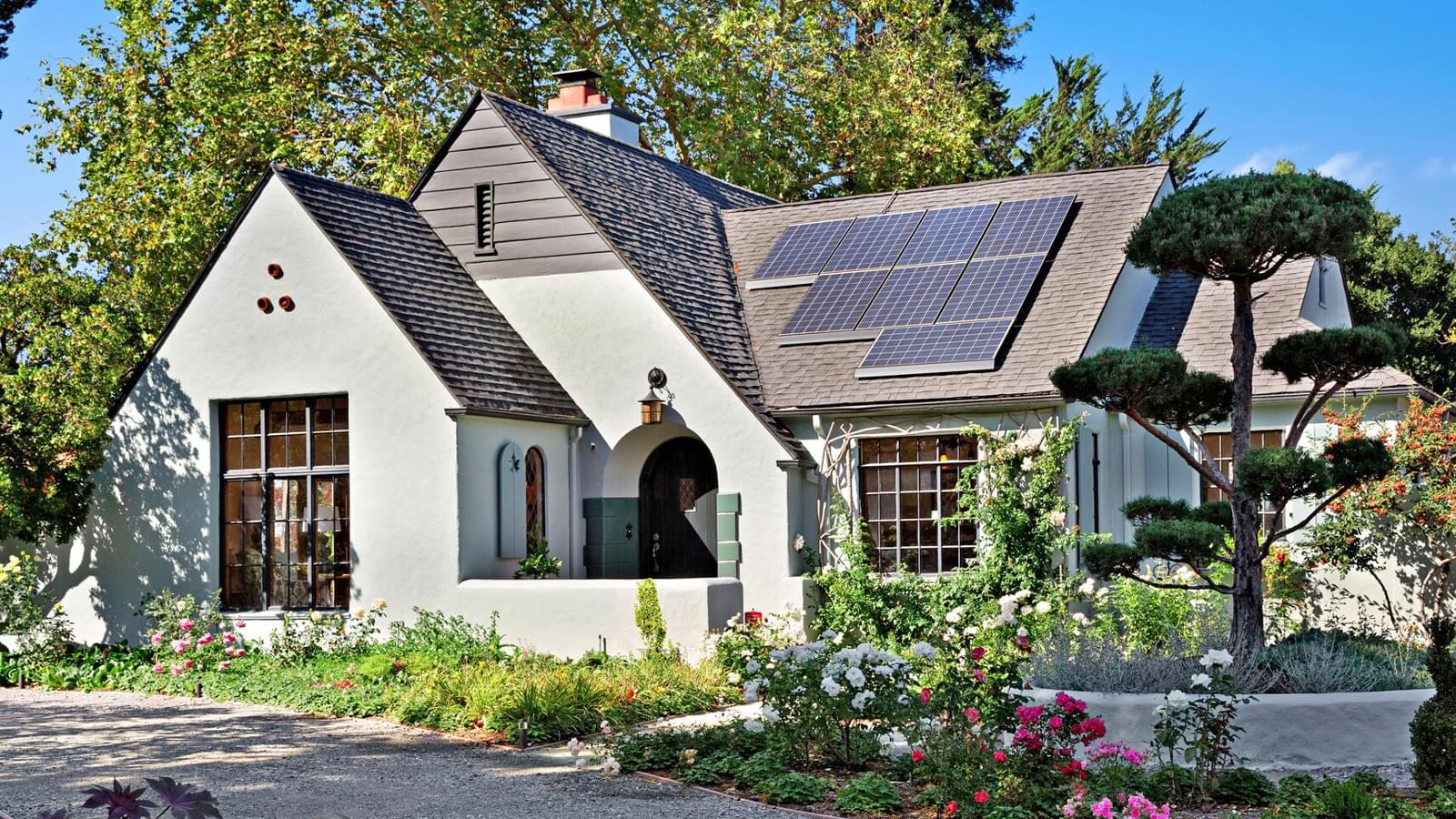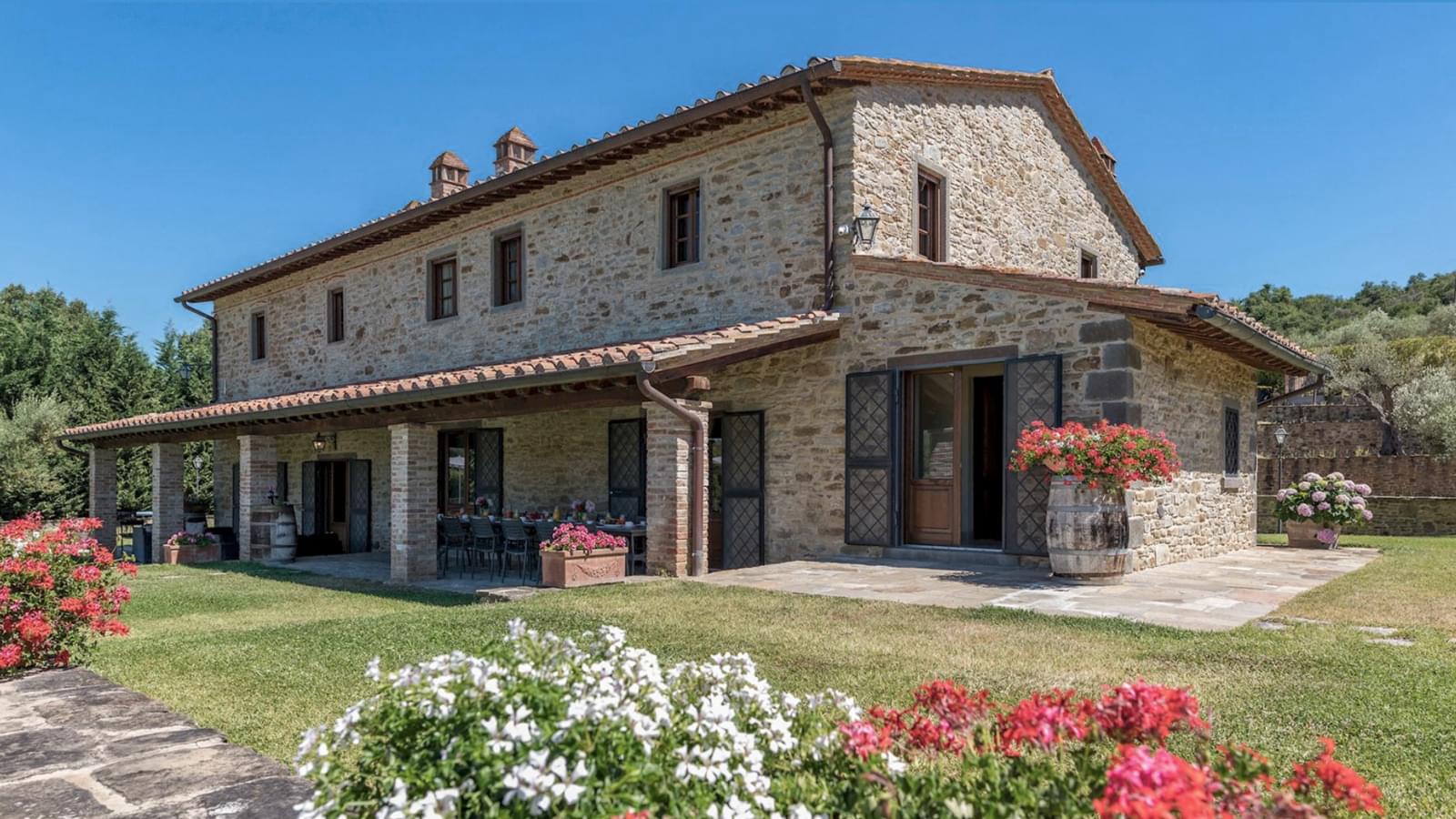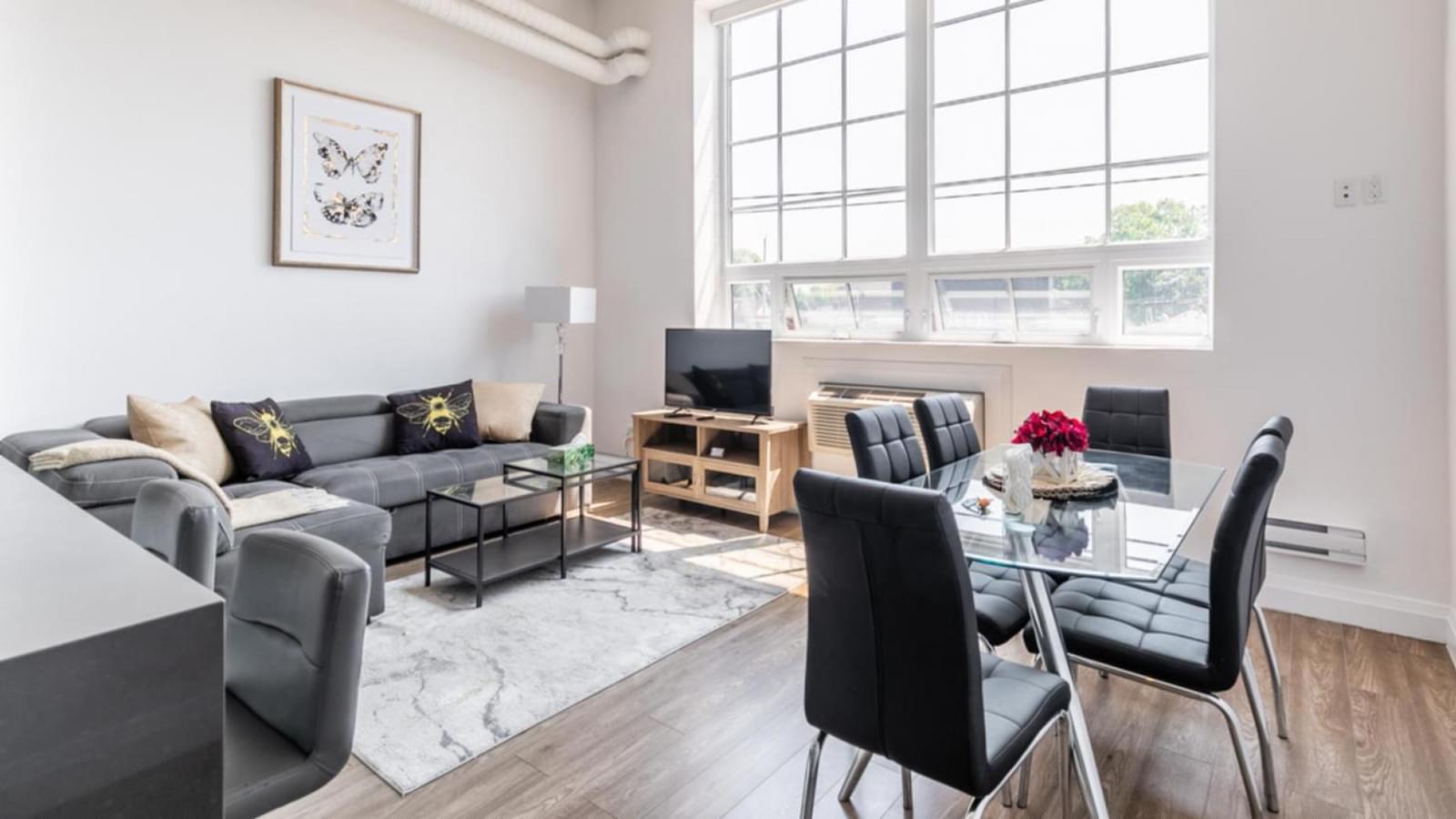Gyeonggi-do Vacation Rentals
Discover a variety of rental homes and villas in Gyeonggi-do for your upcoming trip, whether it's for leisure or work. Indulge in a more customized stay with private vacation home rentals that offer an array of amenities and home features. With a wide selection of available homes, you can find a vacation home that suits your preferences and budget. However you're looking to experience your stay, Homes and Villas by Marriott has your next vacation home waiting.
Types of vacation rentals in Gyeonggi-do
Where to stay in Gyeonggi-do
Show all homesBooking a vacation rental in Gyeonggi-do?
Here are some things to know to support your visit:
Gyeonggi-do Overview
Discover the enchanting Gyeonggi-do, a province in South Korea that seamlessly weaves together the threads of history, culture, and scenic splendor. At the heart of this region lies the majestic Hwaseong Fortress in Suwon, a UNESCO World Heritage Site that stands as a testament to Korea's rich past. This architectural marvel is not just for history enthusiasts but for anyone who appreciates the grandeur of ancient fortifications.
Venture beyond the fortress walls to immerse yourself in the province's natural beauty. The serene Bukhansan National Park beckons outdoor lovers with its inviting trails and panoramic vistas that promise to leave you breathless. While the DMZ may be known for its political significance, it has also become a haven for wildlife, offering a unique juxtaposition of peace and history.
Gyeonggi-do is a cultural treasure trove, where the traditional arts flourish. Witness the fine craftsmanship of Icheon ceramics or step back in time at the Yeoncheon Paleolithic Festival, where prehistoric life is brought to life. The region's culinary scene is equally rich, with local delicacies like Suwon galbi and Yangpyeong hanu offering a taste of the local heritage.
To truly savor the essence of Gyeonggi-do, consider the unparalleled experience of renting a private home. Imagine a tranquil retreat where you have the space entirely to yourself, many of which are pet-friendly, allowing your furry friends to join in on the adventure. For those seeking a splash of luxury, select homes boast swimming pools, perfect for unwinding after a day of exploration.
The allure of Gyeonggi-do extends to its waterfronts, where the gentle lapping of waves provides a soothing backdrop. Whether it's a beachside haven or a lakeside getaway, the province's aquatic charms are a balm for the soul.
Modern thrills are also at your fingertips with Everland Resort in Yongin, South Korea's largest theme park, offering a world of excitement for visitors of all ages. And while the nightlife in Suwon may be more subdued compared to the bustling streets of Seoul, it still offers its own unique charm and a chance to unwind under the stars.
In Gyeonggi-do, every traveler finds their niche amidst the province's diverse offerings. From its storied past to its natural wonders, and from its cultural festivities to its contemporary comforts, Gyeonggi-do is a destination that promises an unforgettable journey.
Cultural Attractions in Gyeonggi-do
Visitors to Gyeonggi-do, South Korea, can expect a wealth of cultural experiences that cater to art enthusiasts, history buffs, and those interested in local customs. The region boasts a range of museums and art galleries that display both traditional and contemporary Korean art. One such establishment is the Gyeonggi Museum of Modern Art which houses an extensive collection of modern and contemporary artworks from local and international artists.
For those with a passion for history, Gyeonggi-do offers numerous historical sites to explore. The Suwon Hwaseong Fortress, recognized as a UNESCO World Heritage Site, provides an insight into ancient Korean architecture and military science from the Joseon Dynasty. Another notable site is the Korean Folk Village in Yongin where visitors can immerse themselves in traditional Korean life.
Music aficionados will appreciate the lively music scene in Gyeonggi-do with various music festivals held throughout the year covering genres from K-pop to classical music. The Ansan Valley Rock Festival is one such event that draws music fans globally.
Gyeonggi-do also presents unique opportunities for visitors to engage with local customs. Traditional tea ceremonies are available at various tea houses while local markets like Yangpyeong Market provide a snapshot of daily life in Korea.
As for transportation within Gyeonggi-do, it has an efficient public transportation system comprising buses and trains that link all major areas within the province as well as Seoul. The region is also quite walkable particularly within city centers or when visiting historical sites or parks.
In summary, Gyeonggi-do offers a culturally rich experience for travelers interested in arts, history, live music, and local customs.
Family friendly activities in Gyeonggi-do
Gyeonggi-do, South Korea, is a delightful destination for families, offering a wide range of attractions and activities tailored for children. The region is renowned for its theme parks such as Everland, the largest of its kind in South Korea. Here, children can experience exciting rides, observe various animal exhibits, and explore beautifully landscaped gardens.
The Korean Folk Village is another attraction that draws many visitors. It provides an immersive experience where children can learn about traditional Korean culture through hands-on activities. They can witness folk music and dance performances, engage in craft workshops, and explore replicas of historical Korean houses.
Animal lovers should not miss out on the Seoul Grand Park Zoo. It ranks among the largest zoos in South Korea and houses over 3,000 animals from around the globe. The park also features an amusement park and botanical garden within its premises.
The Gyeonggi Children’s Museum is a fantastic place for kids to visit. This interactive museum hosts various exhibits designed to pique children's interest in science and the world around them.
For families who enjoy outdoor activities, Gyeonggi-do's natural beauty will not disappoint. The region offers beautiful hiking trails like those at Namhansanseong Provincial Park or Ilsan Lake Park where families can enjoy leisurely walks while appreciating breathtaking views.
In terms of transportation within Gyeonggi-do, it boasts an extensive public transit system with comprehensive bus and subway networks making it easy to navigate around the region. However, due to some attractions being spread out across the province, renting a car might be more convenient especially for families with young children.
While certain areas in Gyeonggi-do are walkable particularly within city centers or parks due to their compact nature; given its status as the most populous province in South Korea encompassing both urban cities and rural areas it may not be practical to traverse large parts of it on foot. Hence while walking could be a viable option in certain areas, it might not be the most efficient mode of transportation to explore the entire province.
In conclusion, Gyeonggi-do, South Korea is a wonderful destination for families offering an array of kid-friendly activities and attractions.
Outdoor activities in Gyeonggi-do
Gyeonggi-do in South Korea is a paradise for those who love nature and outdoor activities. It boasts several national parks, including Bukhansan National Park with its magnificent mountain vistas and hiking trails suitable for all fitness levels. Rock climbing enthusiasts will find Insubong Peak within the park particularly appealing.
The Hantan River Sky Bridge is another natural marvel in Gyeonggi-do. This footbridge offers stunning views of the Hantan River and the surrounding landscape, and it's a favored spot for bungee jumping enthusiasts.
Ilsan Lake Park is an essential stop for water activities. The artificial lake is encircled by walking paths, picnic spots, and even a small zoo. It's an ideal place for boating or simply appreciating the scenery.
While not a natural attraction, Suwon Hwaseong Fortress provides numerous outdoor activities. Visitors can stroll along the fortress walls or participate in archery lessons while enjoying panoramic views of Suwon city.
The Korean Folk Village in Yongin allows visitors to immerse themselves in traditional Korean culture amidst nature. They can explore over 200 traditional houses and gardens from various regions of Korea.
Lastly, any trip to Gyeonggi-do would be incomplete without experiencing its beautiful coastline along the Yellow Sea. Oido Island in Siheung city offers breathtaking sunset views and delectable seafood restaurants right by the sea.
In Gyeonggi-do, there are endless ways to connect with nature whether it's through mountain hiking, riverbank strolling or exploring traditional villages nestled within stunning landscapes.
Weather in Gyeonggi-do
Gyeonggi-do, South Korea is characterized by a temperate climate with four distinct seasons.
The winter season, which spans from December to February, is typically cold and dry. Temperatures often fall below freezing during this period. Snowfall is a common occurrence in these months, providing a scenic winter landscape for visitors.
Springtime in Gyeonggi-do lasts from March to May and brings with it a gradual increase in temperature, with averages ranging between 10°C and 20°C. This season is renowned for the beautiful cherry blossoms that bloom across the region.
The summer months of June through August are generally hot and humid. While specific temperature ranges are not provided, it's worth noting that temperatures frequently surpass 30°C during this time. The monsoon season also falls within these months, resulting in the highest rainfall of the year.
Autumn graces Gyeonggi-do from September to November and offers cooler temperatures between 10°C and 20°C. This season is particularly favored due to its vibrant fall foliage.
The most favorable weather conditions for exploring Gyeonggi-do's outdoor attractions like national parks and historic sites are found in spring and autumn when temperatures are mild and nature is at its most picturesque. However, each season presents its own unique charm offering visitors varying perspectives of Gyeonggi-do's beauty.
Transportation in Gyeonggi-do
Gyeonggi-do, South Korea, offers a range of transportation options for travelers. The majority of international visitors land at Incheon International Airport, one of the world's largest and busiest. From the airport, Gyeonggi-do can be reached by bus or train.
Upon arrival in Gyeonggi-do, visitors can choose from several modes of transportation. The area boasts an extensive public transportation network that includes buses and trains. Additionally, the Seoul Metropolitan Subway extends into Gyeonggi-do, facilitating travel between Seoul and the region.
Car rentals are available for those who prefer to drive themselves around. These can be found at the airport as well as throughout Gyeonggi-do. However, it's worth noting that traffic can sometimes be heavy and parking might be challenging in busier areas.
For cycling enthusiasts, Gyeonggi-do is quite accommodating with numerous bike paths available. Bike rentals are also easily accessible in many parts of the region.
Walkability in Gyeonggi-do varies depending on your location within the region. Some places like Suwon's Hwaseong Fortress or the Korean Folk Village are best explored on foot. However, due to the size of Gyeonggi-do and distances between attractions, some form of transportation will likely be required for most journeys.
In summary, whether you're arriving by plane or train and planning to get around by bus, car or bike; a variety of options await you in Gyeonggi-do.



